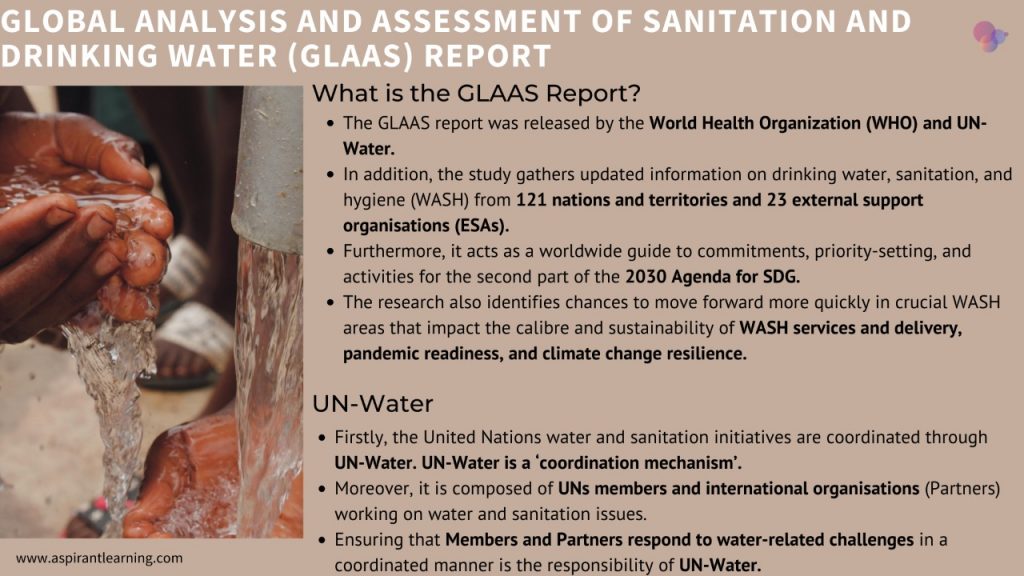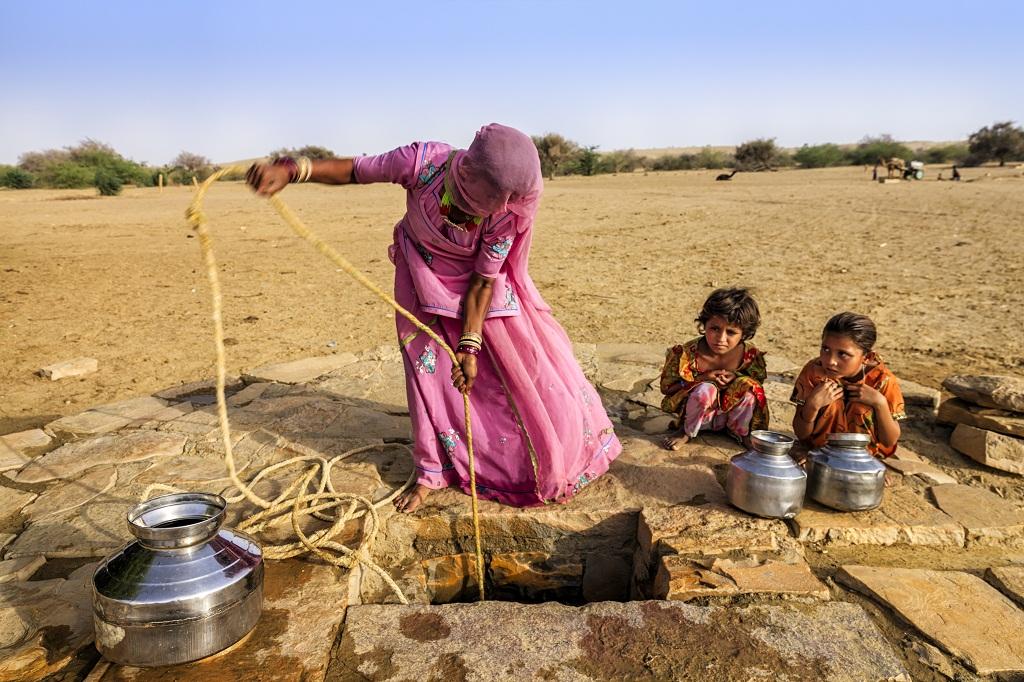News Highlight
Department of Drinking Water and Sanitation, Ministry of Jal Shakthi released Year End Review 2022.
Key Takeaway
- In partnership with States, the Government of India is implementing Jal Jeevan Mission (JJM) to provide tap water to every rural household by 2024.
- India has resolved to provide tap water to the remaining 16.12 million families by 2024.
- As of December 21, 2022, more than 10.76 crores (55.62%) of rural households had access to adequate quantities of high-quality tap water regularly.
- Har Ghar Jal refers to four states: Goa, Telangana, Gujarat, and Haryana, and three union territories: Puducherry, Daman & Diu, Dadra & Nagar Haveli, and Andaman & Nicobar Islands.
- This means that every rural household has access to running water.
- In addition, Punjab (99.93%), Himachal Pradesh (97.17%), and Bihar (95.76%) are on their way to becoming ‘Har Ghar Jal’.
Jal Jeevan Mission (JJM)
- About
- Firstly, it was launched in 2019 to provide 55 litres of daily water per person to every rural household via Functional Household Tap Connections (FHTC) by 2024.
- JJM hopes to establish a Jan Andolan for water, making it a priority for everyone.
- Furthermore, the Jal Shakti Ministry oversees it.
- Objectives
- Firstly, the mission ensures the continued operation of existing water supply systems and connections, water quality monitoring and testing and sustainable agriculture.
- It also ensures that conserved water is used with drinking water source augmentation, water supply systems, grey water treatment, and reuse.
- Implementation
- Paani Samitis are responsible for planning, implementing, managing, operating, and maintaining village water supply systems.
- These groups have 10-15 members, with at least 50% women and other members from Self-Help Groups, Accredited Social and Health Workers, Anganwadi teachers, and other organisations.
- The committees develop a one-time village action plan incorporating all available village resources.
- Moreover, before implementation, the plan is approved by a Gram Sabha.
- Paani Samitis are responsible for planning, implementing, managing, operating, and maintaining village water supply systems.
Swachh Bharat Mission (Grameen)
- About
- Prime Minister of India launched the Swachh Bharat Mission (Grameen), a Centrally Sponsored Scheme, on October 2, 2014.
- The primary goal is to make the country Open Defecation Free (ODF) by the 2nd of October 2019, the 150th birth anniversary of Mahatma Gandhi, by providing toilets to all rural households in the country.
- By the 2nd of October 2019, all villages in the country had declared themselves ODF.
- Achievements
- Between January 1st, 2022 and December 20th, 2022, approximately 1.25 lakh villages will be designated as Open Defecation Free (ODF) Plus.
- The “Sujlam” campaign was launched to prioritise liquid waste management.
- More than 23 lakh soak pits were built as part of the Sujlam 1.0 and Sujlam 2.0 campaigns.
- Under the “GOBARdhan” initiative of SBM(G), 96 community/cluster-level Biogas Plants have been established since January 2022.
Water sanitation and hygiene
- Briefing
- Urgent action is needed globally and locally to achieve safe and sustainably managed water, sanitation and hygiene for all to prevent devastating impacts on the health of millions of people.
- Only 25% of nations are on track to meet their national sanitation goals, whereas 45% are on track to meet their nationally set drinking-water coverage goals.
- Less than one-third of nations reported having enough human resources to complete essential drinking water, sanitation, and hygiene (WASH) tasks.
- Only slightly more than two-thirds of nations have WASH strategies that target people disproportionately impacted by climate change.
Health risks: Drinking water and sanitation
- The most urgent water, sanitation, and health actions
- The three top priorities are providing sufficient quantities of safe water, basic sanitation arrangements and promoting good hygiene.
- The priority is to provide adequate water, even if its safety cannot be guaranteed, and to protect water sources from contamination.
- A minimum of 15 litres per person per day should be provided as soon as possible.
- During an emergency, people may use untreated water for laundry, bathing, and other purposes.
- Water quality can be improved over several days or weeks.
- Following disasters, there are significant health concerns from improper excreta disposal.
- It is crucial to offer lavatory facilities right once where typical sanitary systems have been damaged or destroyed.
- Emergency facilities are frequently temporary and must be gradually upgraded or replaced as the situation changes.
- The immediate response may also include establishing or reinforcing sewage evacuation services, bypassing blocked sewers or carrying out an intensive septic tank or latrine emptying in periurban areas.
- Every effort should be made to allow people to use their existing toilets through temporary repairs to broken sewers and sewage treatment works.
- To facilitate adequate cleanliness, water must be provided in ample quantities.
- Hands should be washed immediately after defecation, after handling babies’ faeces, before preparing food and before eating.

Conclusion
- Sanitation is a state subject, and the state governments run the programme.
- The Government of India provides technical and financial assistance to states to supplement their efforts.
- It is to improve overall cleanliness in villages by publishing programme guidelines, advisories, and grants-in-aid.
- The programme is intended to be a novel model of convergence between various financing verticals and various schemes of the Government of India and state governments.
Pic Courtesy: The Hindu
Content Source: PIB



